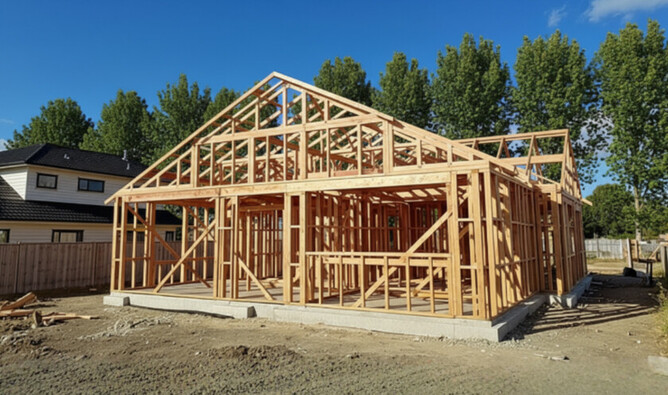The housing building market continues to show signs of recovery, with the release of the September monthly residential building consent figures being its most promising in two years.
According to Statistics NZ, the building market recorded 3747 new residential consents throughout the country in September. This is a 21.7% increase compared to August and up by 27.3% year-on-year.
September figures are the highest number of new dwelling consents issued in any month of the year since November 2022. Statistics NZ places the estimated value of building work on new dwellings consent in September at $1.622 billion.
"Residential construction has declined in recent years, but home consents have been trending up through 2025 and have strengthened in recent months, suggesting a possible lift in future building activity," economic indicators spokesperson Michelle Feyen said.
Consents for stand-alone houses increased 16.2% year-on-year, while apartment consents had a significant uplift of 57.4%, and townhouses/home units were up 49.8%.
Retirement village units were the only housing type to see a decrease, with consents for new retirement units down 61.4% year-on-year.
Consent for Non-Residential Building Work
The value of non-residential building work consented also recorded a significant jump at $947 million in September. This is an increase of 47.0% year-on-year.
Non-residential building work includes both construction and alterations to non-residential buildings, which range from commercial buildings, such as offices, shops, factories, and warehouses, to public service buildings, including hospitals and schools.
That brought the total value of all types of building work consented in September to $2.829 billion, a 29.3% increase compared to September last year.
Third Increase in a Row
Satish Ranchod, Westpac senior economist, said there’s been a steady growth of building consent issuance, with September recording the third climb in a row.
“With large reductions in interest rates working their way through the economy, we expect the recovery will strengthen over the coming year,” he said.
“We expect consent numbers will continue to trend higher over the year ahead and that homebuilding activity will lift over 2026. However, that’s likely to be a gradual rise.
“While low interest rates are supporting new development, population growth remains low and there have been sizeable increases in the housing stock over the past few years.”
Ranchod mentions that these factors will affect house price growth and will put a dampener on the pace of home building. It is unlikely we’ll see a significant turnaround or significant decline in the final months of this year.
Infometrics chief forecaster Gareth Kiernan said lower interest rates appear to have a positive effect on residential building activity. Consent numbers for September were 5.5% higher than Infometrics’ recent forecasts, which were mainly due to stronger-than-expected townhouse and apartment numbers.
“Nevertheless, this strength is consistent with our forecast of a rise in annual consent numbers towards 38,400 by the second half of 2026.”
Key takeaway
Builders and construction companies can now see more work ahead in the pipeline, with more to possibly come. Staying ahead in these times is critical, especially with project security. Managing project risks provides builders with peace of mind as they take on multiple projects with varying complexities.
Bonded NZ helps builders and contractors find the best insurance, warranties, and surety bonds that keep their best interests in mind. Whether it's a big or small project, our cost-effective options help them secure their projects at every angle.
For more information about our services, contact our team today.
